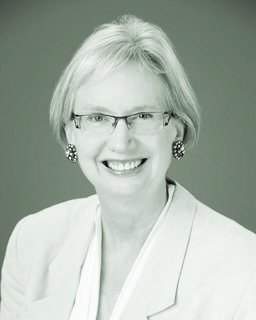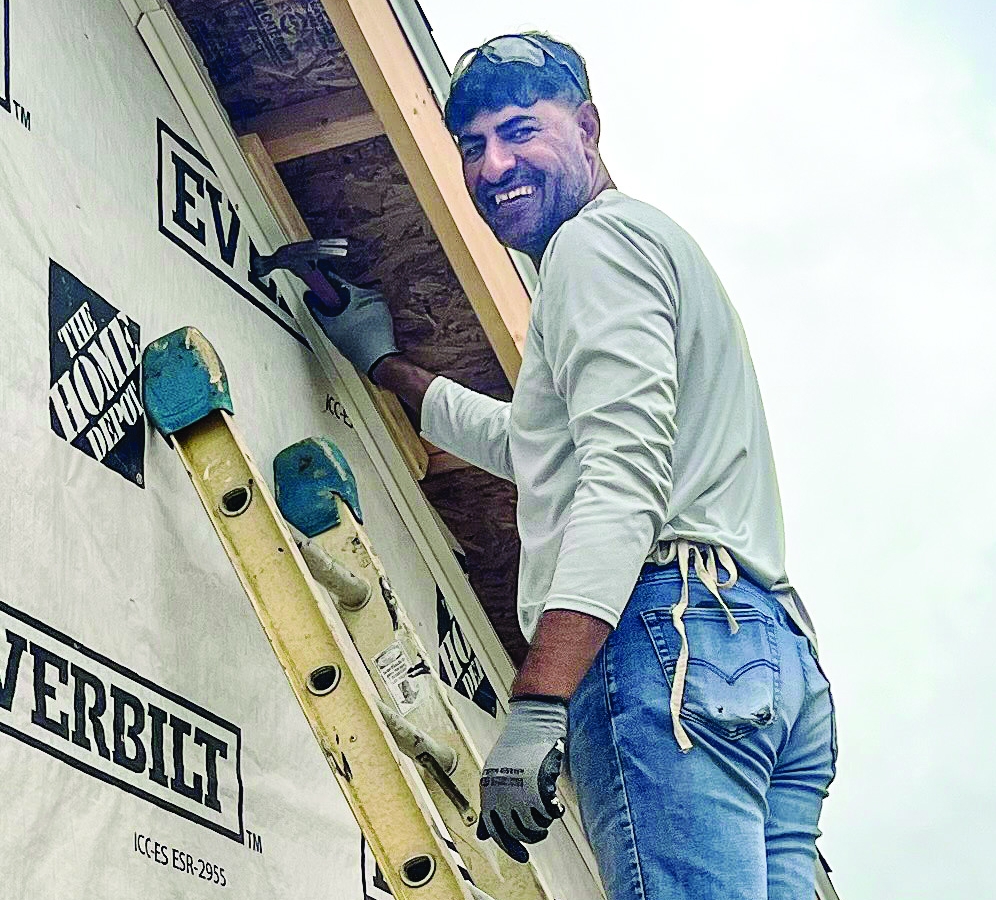Belko Peace Lecture features Karen Segal discussing immigration
Photo features Karen Puschel Segal
By Linda Engelhard
Sun contributor
If you take a leisurely drive along Leelanau roads and read the names on street signs and mailboxes, the immigrant nature of our peninsula is obvious: Carlson, Kalchik, Fredrickson, Pleva, Putnam, Fleis. The Native Americans of Leelanau likely worried about what these newcomers would mean for their way of life. More recently, the list has expanded to include names like Moreno, Perez, and Martinez. And now the descendants of early European immigrants are wondering how these newer immigrants will affect their lives.
On Oct. 11, Karen Puschel Segal will speak at Trinity Church in Northport for the 2025 Belko Peace Lecture. Her topic is “The Immigration Challenge in America Today.” Karen had a 20-year career in the Department of State, first as an intelligence analyst of Soviet Affairs and then as a diplomat in Russia. Upon moving to Traverse City, she became Co-Chair and Director of NMC’s International Affairs Forum. Now, Karen leads a local team resettling families from Afghanistan and Ukraine. She knows first-hand how our nation has been dealing with immigrants, including right here in northern Michigan.
The Belko Peace Lecture began 20 years ago when the Rev. Bill Belko challenged the Trinity Church Education and Outreach Committee to present a lecture for the public on the subject of peace. With no precedent, the committee began with local speakers but soon expanded to national speakers like Dr. Gustav Niebuhr and Rabbi Brad Hirschfield. This year, on Oct. 11, they return to local expertise to tackle the question of immigration, one of today’s most controversial issues.

Aukeman family 1944 (the author’s grandparents and their children).
As the granddaughter of immigrants, my perspective is deeply rooted in observing my grandparents’ lives. They worked so diligently to contribute to this country, laboring for long days on their farm and raising nine children, some who served in the military or built homes, and some who became nurses or artists. But as challenging as their lives were, no one ever added to their burdens by stopping them or detaining them, demanding to see their immigration documents. In fact, they were likely too hard at work to investigate what their immigration status was.
In recent years, the immigration messages coming from Washington have become increasingly demeaning and cruel. Yet, the behavior and character of the immigrants I know are very much like those of my grandparents, except that fear has now been added to their daily experience. For 20 years, I had the privilege of teaching English to language learners in Michigan and Texas. One of my favorite memories is teaching a class of 12 students, each of whom spoke a different language. What they shared was the inability to tell me about their experiences and traumas until they learned enough English to begin describing their journeys.
Some of the students, like Thet, had escaped by hiding in the tree limbs of Southeast Asian jungles during the day, absolutely silent, and traveling only at night. Nabil escaped Iran with his family after his grandfather had been murdered for his Bahai faith. When Alexandra was targeted by local gangs, her mother insisted they cross the Rio Grande to safety, but the current was too strong, and her mother was washed away downstream when she lost her grip on Alexandra’s arm. Qian’s parents carefully followed every immigration law when they were offered jobs in the United States. Not certain that they would like their new positions, they left Qian with his grandparents in Shanghai, and after a year of enjoying the work, they applied for Qian’s visa. Ten years later, as an awkward teenager, he was finally granted a visa to join his parents and try to learn English quickly enough to pass his high school exams. Telling immigrants to self deport and follow the rules is an unkind cliché, not a realistic solution.
Unless we are Native American, we are all the descendants of immigrants. Much of our country’s infrastructure was built by immigrant labor, including major railroads and bridges. Our amazing restaurant choices include recipes from the immigrant community. I remember when a friend from California introduced me, in 1972, to a food that I had never experienced – a taco! Our lives are enriched by music, from classical to salsa, another gift from immigrants. Our country is a rich tapestry of cultures. We have the ability to develop a system that works for citizens and immigrants alike, and at this fragile time in history, we do not have the luxury of sitting on the sidelines.
One step toward moving forward is learning more about the issue. Karen Segal will speak in Northport on Oct. 11 at 7 p.m., and again in Traverse City at the Grand Traverse Humanist meeting on Monday, Oct. 13, at 6 p.m. Both events are free and open to the public.
John Foster Dulles, President Eisenhower’s Secretary of State, said this about solving problems: “The measure of success is not whether you have a tough problem to deal with, but whether it is the same problem you had last year.” By that standard, we have certainly not achieved success, but learning more about the problem can help us move closer to a just and humane solution.










